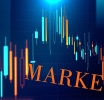The Future of Exchanges: Evolution, Technology, and New Horizons

The Future of Exchanges: Evolution, Technology, and New Horizons
Exchanges have always been a cornerstone of the global financial system, providing platforms for trading stocks, bonds, commodities, currencies, and other assets.
However, with the rise of technology, evolving regulatory requirements, and growing interest in digital assets, the future of exchanges is becoming increasingly exciting and promising.
What trends and innovations will shape their evolution in the coming years?
However, with the rise of technology, evolving regulatory requirements, and growing interest in digital assets, the future of exchanges is becoming increasingly exciting and promising.
What trends and innovations will shape their evolution in the coming years?

The Future of Exchanges: Evolution, Technology, and New Horizons
1. Digitalization and Automation
Technology continues to play a central role in the transformation of exchanges. Automation, along with the adoption of artificial intelligence (AI) and machine learning (ML), is enhancing efficiency, accuracy, and speed across operations.Algorithmic Trading : Algorithmic systems now dominate trading volumes on major exchanges. These systems use complex algorithms to execute trades at optimal prices and speeds, minimizing human error and maximizing performance.
AI for Market Analysis : AI-driven tools are being used to analyze vast amounts of data, identify patterns, and predict market movements. This helps traders and institutions make more informed decisions.
Blockchain Integration : Blockchain technology is revolutionizing how transactions are recorded and verified. By enabling decentralized ledgers, exchanges can improve transparency, reduce fraud, and lower operational costs.
2. Rise of Digital Assets
The emergence of cryptocurrencies and other digital assets has created a seismic shift in the exchange landscape. Traditional exchanges are adapting to accommodate this new asset class, while entirely new platforms are emerging to cater specifically to digital assets.Crypto Exchanges : Platforms like Binance, Coinbase, and Kraken have become household names, offering users access to a wide range of cryptocurrencies. These exchanges are pushing boundaries by introducing features like staking, lending, and decentralized finance (DeFi) integration.
Tokenization of Assets : Beyond cryptocurrencies, traditional assets such as real estate, art, and even company shares are being tokenized. This process allows fractional ownership and increases liquidity, making it easier for investors to access previously illiquid markets.
Regulatory Clarity : As governments around the world develop frameworks for regulating digital assets, exchanges are working to ensure compliance. This will help build trust among institutional investors and pave the way for broader adoption.
3. Decentralized Exchanges (DEXs)
Decentralized exchanges (DEXs) are gaining traction as part of the broader decentralization movement in finance. Unlike traditional centralized exchanges, DEXs operate without intermediaries, allowing users to trade directly from their wallets.Peer-to-Peer Trading : DEXs enable peer-to-peer transactions, giving users full control over their funds and eliminating the need for third-party custodians.
Security and Privacy : Since DEXs do not hold user funds, they are less vulnerable to hacking compared to centralized exchanges. Additionally, many DEXs prioritize user privacy by minimizing data collection.
Challenges Ahead : Despite their advantages, DEXs face challenges such as lower liquidity, slower transaction speeds, and a steeper learning curve for non-technical users. Overcoming these hurdles will be critical for widespread adoption.
4. Globalization and Accessibility
Modern exchanges are breaking down geographical barriers, making financial markets more accessible than ever before.Cross-Border Trading : Advances in technology and regulation are enabling seamless cross-border trading. Investors can now access international markets with ease, diversifying their portfolios and tapping into global growth opportunities.
Mobile Trading : The proliferation of smartphones has democratized access to financial markets. Mobile trading apps allow users to trade anytime, anywhere, empowering retail investors worldwide.
Inclusive Finance : Exchanges are increasingly focusing on inclusivity, offering low-cost solutions and educational resources to attract underserved communities.
5. Sustainability and ESG Focus
Environmental, Social, and Governance (ESG) considerations are reshaping the financial industry, and exchanges are no exception.Green Initiatives : Many exchanges are adopting sustainable practices, such as reducing energy consumption and promoting green investments. For example, some platforms are prioritizing listings for companies with strong ESG credentials.
Carbon Credits Trading : Specialized exchanges are emerging to facilitate the trading of carbon credits, supporting global efforts to combat climate change.
Investor Demand : Institutional and retail investors alike are demanding more transparency and accountability when it comes to ESG metrics. Exchanges that prioritize sustainability will likely gain a competitive edge.
6. Enhanced Security Measures
As cyber threats continue to evolve, exchanges must invest heavily in security to protect user data and funds.Biometric Authentication : Advanced authentication methods, such as fingerprint scanning and facial recognition, are becoming standard for verifying user identities.
Quantum-Resistant Encryption : With the advent of quantum computing, exchanges are exploring encryption techniques that can withstand potential quantum attacks.
Insurance Products : Some exchanges are partnering with insurers to offer protection against hacks and other security breaches, boosting user confidence.
7. Hybrid Models
The future may see the rise of hybrid exchanges that combine the best features of centralized and decentralized platforms.Centralized Efficiency Meets Decentralized Trust : Hybrid models aim to provide the speed and liquidity of centralized exchanges while maintaining the transparency and security of decentralized systems.
Interoperability : These platforms could bridge the gap between traditional finance and blockchain-based ecosystems, fostering greater collaboration and innovation.
8. Regulatory Evolution
Regulation will remain a key driver of change in the exchange space. Governments and regulatory bodies are working to strike a balance between fostering innovation and protecting consumers.Unified Standards : Efforts are underway to establish global standards for exchanges, particularly in areas like cybersecurity, data privacy, and anti-money laundering (AML).
Central Bank Digital Currencies (CBDCs) : The introduction of CBDCs could lead to new types of exchanges or modifications to existing ones, facilitating direct interactions between central banks and individuals.
A Dynamic Future Awaits
The future of exchanges is bright, driven by technological advancements, the rise of digital assets, and an increasing focus on accessibility and sustainability. While challenges remain—such as regulatory uncertainty and cybersecurity risks—the opportunities far outweigh the obstacles.For traditional exchanges, embracing innovation will be crucial to staying relevant in a rapidly changing landscape. Meanwhile, new players like decentralized exchanges and digital asset platforms are poised to disrupt the status quo, offering fresh alternatives to traders and investors.
Whether you're a seasoned professional or a newcomer to financial markets, the evolving exchange ecosystem promises exciting possibilities. By staying informed and adaptable, participants can navigate this dynamic environment and seize the opportunities it presents.









Report
My comments